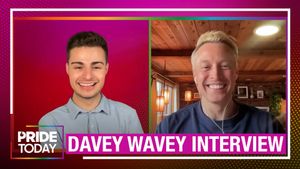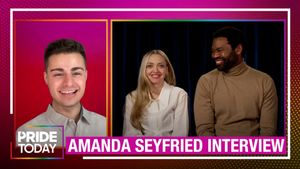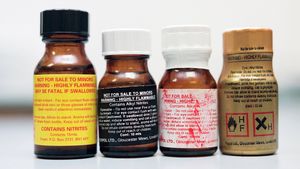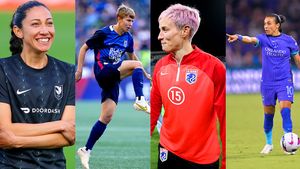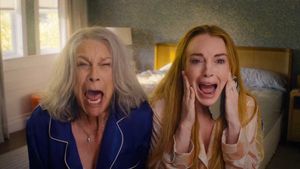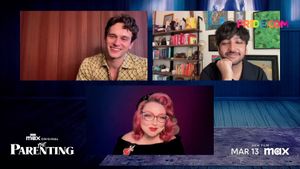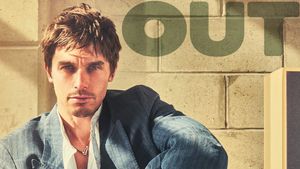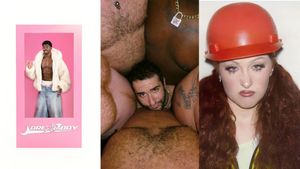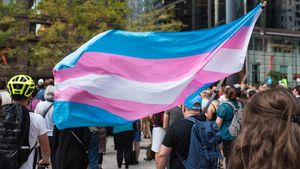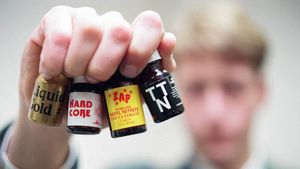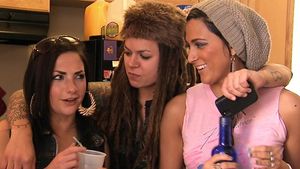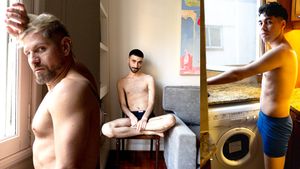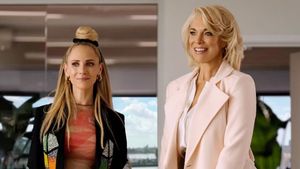I stood outside and adjusted my tie right before I walked in. This was only the second time I had visited this classroom and I wanted to make an impression. I held my And Tango Makes Three book closely to my chest and realized that my hands had left a slightly wet mark on the plastic cover. I breathed and asked myself, "Why am I so nervous?" I took a moment to gather my breath: I wiped my hands on my pressed linen pants and walked into the classroom.
It was the first time I had ever read a book that focused on anything gay, and I wasn't sure how it was going to be received. I was asked by the teacher to come in and read a book that provided a space to talk about different families, specifically gay families. A student, who happened to have two gay dads, was feeling picked on and felt that no one understood where he was coming from. As the director of diversity, I was often looked at to start these types of conversations. So, I did.
All the second-grade eyes were looking at me. Their eyes beamed with excitement at a new visitor. The students hardly knew me yet were quick in welcoming me into their space. Their smiles made me feel slightly at ease. I stepped inside the classroom and was surprised to hear the symphony of greetings -- "Buenos dias!" "Good morning," and "Hi, Mr. Vasquez!" -- all sounding like the 30 seconds you spend in the car switching radio stations, hearing different songs and waiting to hear the right sound that would allow you to survive the traffic jam. I took it all in. I looked around and noticed the posters of Martin Luther King, Jr., Dolores Huerta, and one with the Gandhi quote, "Be the change you want to see in the world." These three figures had always been a part of my life and my pedagogy, and looking at them at this moment felt like a sign. I told myself, "You got this," sat down, and prepared myself for opening the meeting. The kids rushed to the carpet, formed a circle, and had all their eyes on the book I was holding in my hand.
I opened my book and began to read. As I read the story of the two male penguins raising a baby penguin named Tango in Central Park, students raised their hands in excitement and simultaneously let me know that they too had been to the Central Park Zoo. Their commentary allowed me to laugh and feel more at ease with the rest of the story. As I read, I noticed my breath getting calmer as I began to enjoy the story. It was amazing to see their eyes as they attempted to make sense of the fact that love exists in different ways -- even between "two boy penguins," as one student proclaimed. As the story came to its end I noticed Jonathan, the boy with two dads, sitting across from me and hanging on my every word. He was smiling, with eyes wide open, and seemed to be excited to hear an aspect of his story being told.
I finished and answered some simple questions ranging from "How is Tango now?" "Can I go see Tango at Central Park?" "Can penguins live in the beach?" and "How old are Tango's parents?" The questions came rapid-fire, but I was able to answer all of them with ease. That all changed when I called on Jonathan. He quickly asked three questions all at once: "Are you married? Are you gay like Tango's parents? Do you have kids?" My heart stopped. All twenty-two sets of eyes were on me, waiting for my response. In my head all these questions appeared at once. What do I say? Do I lie? I need to pay my rent! My heart started beating rapidly, and I looked at him and said,
"Yes, I am married to a man and, just like Tango's parents, I am starting a family." Students just looked at me and smiled. As I was about to continue talking, Jonathan interrupted and talked about his two dads and their trip to the zoo, which allowed other students to chime in and make a connection. I looked at the clock and realized it was time for me to go. I quickly got up, thanked them, and continued to my next meeting,
I had been in the role of director of diversity at this school for only one month, and I felt excited that I could have these conversations within the school. As I walked down the hall, I felt a sense of accomplishment.
As a queer Latino male, it had been rare to feel I could walk into a space and just be. As an educator, I always hesitated to show my true self. I never had a picture of Miguel on my office desk. I always avoided answering the question from kids, "Mr. Vasquez, are you married?" or "Do you have a girlfriend?" Yet I often was very vocal when my gay white colleagues would ask me the flippant question, "Why are black people so homophobic?" while not understanding that that question in itself screams "Stereotype!"
 Many times I felt as if I led a triple life. One was my queer, out, activist, Latino self, who holds up a protest sign at the drop of a hat. My second was my work self, one who was out with fellow teachers. I was the one who would push conversations about LGBT rights in our workspace, stressing the need for gender-inclusive language and a diverse curriculum that went beyond Harvey Milk. My third was rather different. That third self was me as a teacher. I was constantly fearful that I would be asked a question about my sexuality. I didn't fear the reaction of the students but rather the reaction of the institution under which I was working. Although I know that getting fired for one's sexuality is illegal in New York State and so 1980s (at least in New York City's independent schools), I still wanted to keep this part of my life outside the classroom. I was comfortable with fellow straight teachers sharing their stories with students about their weddings, what they had done that weekend, or having their significant other pick them up from work. But for me, I felt more comfortable staying in the closet. What if I said the wrong thing? What if I were to get fired for saying, "No, I don't have a wife. I have a husband!"? What if I am accused of being inappropriate? I often think of where this unfounded fear comes from. Is it my internalized homophobia?
Many times I felt as if I led a triple life. One was my queer, out, activist, Latino self, who holds up a protest sign at the drop of a hat. My second was my work self, one who was out with fellow teachers. I was the one who would push conversations about LGBT rights in our workspace, stressing the need for gender-inclusive language and a diverse curriculum that went beyond Harvey Milk. My third was rather different. That third self was me as a teacher. I was constantly fearful that I would be asked a question about my sexuality. I didn't fear the reaction of the students but rather the reaction of the institution under which I was working. Although I know that getting fired for one's sexuality is illegal in New York State and so 1980s (at least in New York City's independent schools), I still wanted to keep this part of my life outside the classroom. I was comfortable with fellow straight teachers sharing their stories with students about their weddings, what they had done that weekend, or having their significant other pick them up from work. But for me, I felt more comfortable staying in the closet. What if I said the wrong thing? What if I were to get fired for saying, "No, I don't have a wife. I have a husband!"? What if I am accused of being inappropriate? I often think of where this unfounded fear comes from. Is it my internalized homophobia?
Have I been trained to constantly be in a state of awareness and doubt? Probably so. As I was answering Jonathan's questions, these thoughts came into my head, but I decided to let them go. I decided to see what happens and be free of the doubt and be my true self.
After that second-grade visit, I felt alive. I felt whole. I felt that I came out again, and this time it was easy. All those doubts began to disappear. I was confident that I had used all my skills to answer questions while remaining "appropriate." Days passed and I was on a high.
When I entered the cafeteria a week later my high quickly dissipated. As I was getting my coffee, a parent approached me and sternly demanded to talk to me. Her tone was odd and I was unsure of what was to follow. She began to tell me in a firm voice that -- and I quote -- "Saying the word gay is a bad word in my house, and I would hope you never say it again!" Her voice was stern, angry, and without an ounce of shame. As she continued her tirade, I began to feel my heart beat faster, my breath shorten. The cafeteria was empty. The sounds of the NYC traffic had muted and all that was left was her voice and her anger. I quickly woke up, fixed my perplexed look, and began to formulate a sentence that could serve as a response, one that could soothe her anger and get me out of the situation as quickly as possible. I began to tell her the importance of using language that is inclusive and that prepared our children to interact with "different" types of people. I stressed the need for us to accept people for who they are, no matter what they are. She looked at me with displeasure and got up. She left me midsentence as I was talking about the importance of language and acceptance. She walked out and didn't look back.
I looked on as she walked out of the cafeteria. Her body was tensed up and her hands were clenched. She stomped up the stairs, leaving the sound of her feet lingering in the background and filling the empty space. I looked around. I was the only one there, the only one to take in this news, the only one to respond, the only one to make sense of what had just happened. I got up, went to my office, closed my door, and cried.
That was almost five years ago, and her voice -- the voice of bigotry -- still haunts me. Although I have moved on and realize that this is the work I have to do as a Queer Latino Educator, that voice continues to instill me with fear and the sense that I am doing something wrong. Every day I fight to get rid of that voice. I fight to make sure that I can be whoever I am. I fight for inclusive spaces, to continue providing examples, not only for Jonathan but also for all the students who are in the classroom and wanting to know if it's okay to love who they love.
I have accepted that I am a Queer Latino Educator. I am a Queer Latino Educator -- one who will use his voice for the work that needs to be undone and the work that needs to be done. I am a Queer Latino Educator -- one who will introduce his students and school community to the power of inclusivity and language. I am a Queer Latino Educator -- one who lives with three selves and is working to make them one. I am a Queer Latino Educator -- one who will teach, love, and strive to be who he is and to create spaces where people don't want me to hide. I am a Queer Latino Educator -- one who will work to make sure that we have schools that aim to create spaces where all our identities can enter. I am a Queer Latino Educator.
Excerpted from One Teacher in Ten in the New Millennium, edited by Kevin Jennings (Beacon Press, 2015). Reprinted with permission from Beacon Press.
 BENNY VASQUEZ is the director of diversity at a school in New York City.
BENNY VASQUEZ is the director of diversity at a school in New York City.
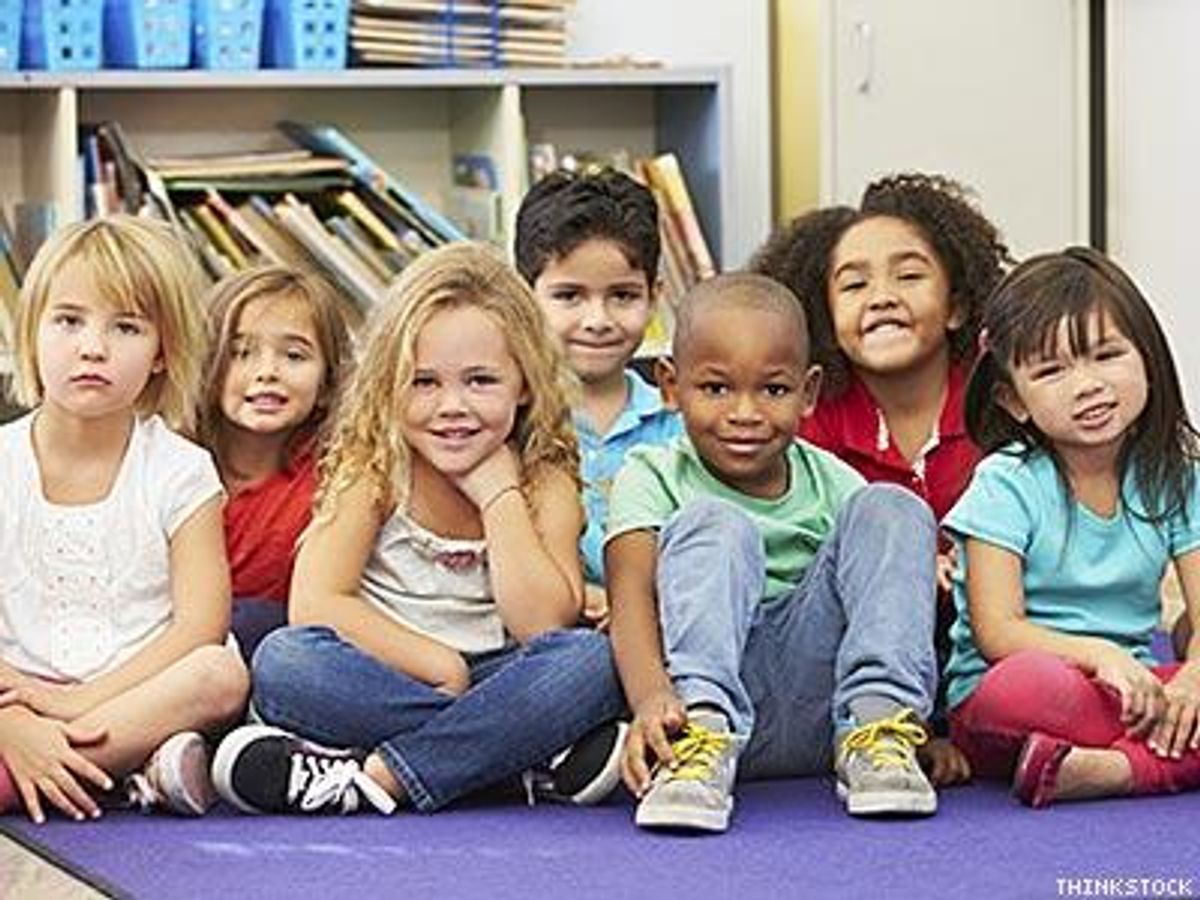

 Many times I felt as if I led a triple life. One was my queer, out, activist, Latino self, who holds up a protest sign at the drop of a hat. My second was my work self, one who was out with fellow teachers. I was the one who would push conversations about LGBT rights in our workspace, stressing the need for gender-inclusive language and a diverse curriculum that went beyond Harvey Milk. My third was rather different. That third self was me as a teacher. I was constantly fearful that I would be asked a question about my sexuality. I didn't fear the reaction of the students but rather the reaction of the institution under which I was working. Although I know that getting fired for one's sexuality is illegal in New York State and so 1980s (at least in New York City's independent schools), I still wanted to keep this part of my life outside the classroom. I was comfortable with fellow straight teachers sharing their stories with students about their weddings, what they had done that weekend, or having their significant other pick them up from work. But for me, I felt more comfortable staying in the closet. What if I said the wrong thing? What if I were to get fired for saying, "No, I don't have a wife. I have a husband!"? What if I am accused of being inappropriate? I often think of where this unfounded fear comes from. Is it my internalized homophobia?
Many times I felt as if I led a triple life. One was my queer, out, activist, Latino self, who holds up a protest sign at the drop of a hat. My second was my work self, one who was out with fellow teachers. I was the one who would push conversations about LGBT rights in our workspace, stressing the need for gender-inclusive language and a diverse curriculum that went beyond Harvey Milk. My third was rather different. That third self was me as a teacher. I was constantly fearful that I would be asked a question about my sexuality. I didn't fear the reaction of the students but rather the reaction of the institution under which I was working. Although I know that getting fired for one's sexuality is illegal in New York State and so 1980s (at least in New York City's independent schools), I still wanted to keep this part of my life outside the classroom. I was comfortable with fellow straight teachers sharing their stories with students about their weddings, what they had done that weekend, or having their significant other pick them up from work. But for me, I felt more comfortable staying in the closet. What if I said the wrong thing? What if I were to get fired for saying, "No, I don't have a wife. I have a husband!"? What if I am accused of being inappropriate? I often think of where this unfounded fear comes from. Is it my internalized homophobia? BENNY VASQUEZ is the director of diversity at a school in New York City.
BENNY VASQUEZ is the director of diversity at a school in New York City.
































